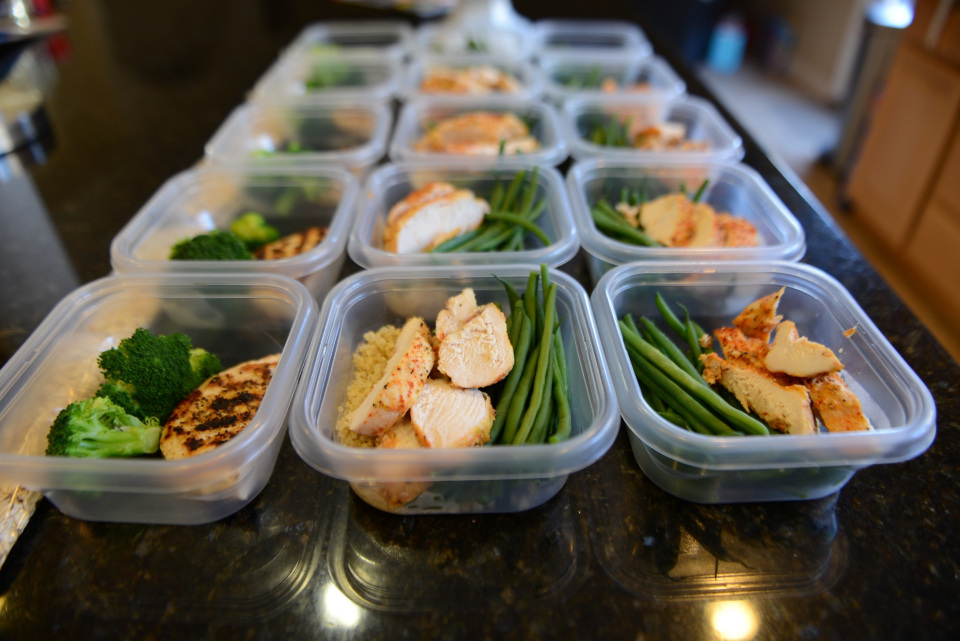Interview with dietician Serena Sullivan: Is a bulk food prep days in advance the best way forward for dietary success?
This month, we are excited to welcome back accredited dietician Serena Sullivan from Gather Nutrition. We were able to speak about food preps and kitchen staples, and whether or not preparing foods in advance was the only way forward in terms of improving one’s diet. Without further ado:
As a dietician, do you feel as though the practice of preparing food days in advance is the best way to ensure dietary compliance?
Personally, I am much more successful consuming a healthy, well rounded diet when I spend 20-30 minutes each night preparing meals/snacks as opposed to preparing them all in one go. I feel big batch cooking and a fridge full of tupperware containers can look and feel like ‘dieting’. Some people may be able to do that for a short period of time before they either become bored or they fall off the wagon due to not finding the amount of time required on a weekend.
Can cooking foods in bulk at times be a daunting prospect for someone trying to improve their eating habits?
In my experience, very much so. People can often find bulk prepping quite daunting. Many have good intentions when they set the goal of setting aside time on the weekend to do the planning, shopping, and preparing, but due to the hours this may take, it can be a challenge at times depending on the demands of family/social commitments and the like.
In saying that I have also seen clients who have made it a genuine part of their lifestyle and have sustained it for an extended period! It depends on what will suit your needs and what is a sustainable approach for ongoing success.
What are your favourite staple ingredients to include in your 20-30min prep each night?
My favourites to prepare at night will be a small container of full fat plain greek yoghurt and either a whole fresh piece of fruit or chopped fruit. I’ll always pack a variety of nuts and seeds which sometimes I’ll add to the yogurt or have separately. Its simple but you can’t go wrong with fruit and nuts. This makes for an easy snack throughout the day. I try to buy a few different types of fruit for the sake of variety.
I scale our dinner shopping to serve 4-5 people (only 2 people at home) so there is always left overs for lunches the next day. I’m always sure to have frozen vegetables, microwave rice, wholegrain bread, and some type of salad mixture, that way if dinner left overs are short on vegetables or a carbohydrate source, I can turn to these options to prepare a complete and substantial meal. Having the salad and wholegrain bread on hand usually means I will always have ingredients for a last minute salad sandwich with any vegetables if need be.
How do you ensure your clients are eating the correct portion sizes?
Whilst I educate my clients on serving sizes, I put more emphasis on making sure they are consuming enough food as opposed to food restriction. I put the biggest emphasis on the serving sizes of vegetables and try to encourage increasing vegetables servings. At the end of the day I want people looking at their meal and asking if they can see twice the amount of vegetables than they can see of protein or carbohydrates. If a meal is primarily vegetable based, it will always be nutritious and naturally lower in energy. Encouraging people to start thinking about increasing their vegetable intake (as well as increasing their intake of different varieties of vegetables) will mean they will naturally start to reduce in other areas where they may be over consuming.
I will however speak more specifically about carbohydrate serving sizes with clients who have particular health conditions, such as diabetes or insulin resistance. As a general rule of thumb, I try not too do too much food policing to give clients space to make changes on their own terms!
The Final Word with James:
Remember what may work for others is not necessarily the best option for you. Whether you are preparing your food days in advance in one hit, or doing a little preparation each night, the important thing is to have a plan of sorts. Write down some meals which you can cook, but be sure to pack your kitchen with some staples (think frozen vegetables, canned goods, microwaveable rice/couscous/quinoa, eggs, mixed leaf bags from the supermarket) incase your best intentions don’t come to fruition.
Follow Serena on Instagram @gathernutrition for more great tips!

